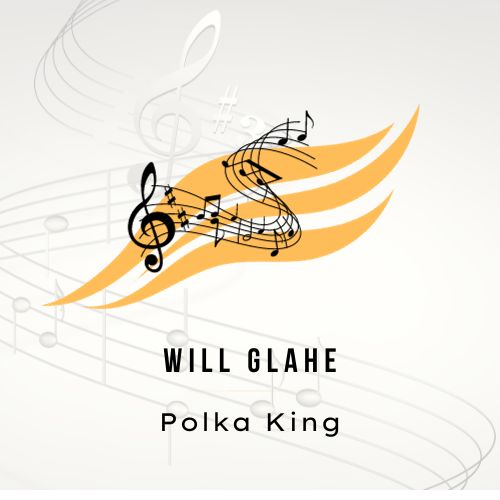Introduction to the “Polka King”
An accomplished accordionist and composer, German native Will Glahe led his own orchestra by the 1930s and rose to fame and success in playing popular music during his time. In the US, Glahe achieved the pinnacle of chart success through his own composition “Beer Barrel Polka” in 1939. Post-World War II, the late Glahe became popularly known as the “Polka King” for conducting and performing such other tunes of this style as “Liechstensteiner Polka,” “W.P.A. Polka” and “Bartender Polka,” all of them which also became a big hit on the US Hot 100. His known other records were “Woodpecker Peck,” “You Can’t Be True” and “Sweet Elizabeth.”
Will Glahe’s career and his rise to fame via “Beer Barrel Polka”
Accordionist, composer and bandleader Gustaf Adolf Wilhelm Glahé aka Will Glahé was born in Elberfield, Germany. He became very popular in Germany as one of its most premiere accordionists, along with Heinz Munsonius and Albert Vossen.
In 1932 Glahé led his own band, it is not specified though if it was the Musette Orchestra which helped him bring hits over in the US. In his home country, he scored one of the most popular songs entitled “Rosamunde,” his rendition of a original Czechoslovakian melody called “Škoda lásky” (“Wasted Love”). It was created by Czech composers Jaromir Vejvoda and Eduard Ingris.
“Rosamunde” found its way into the US shores, where it was retitled “Beer Barrel Polka.” The song was also known by its alternative title “Roll Out the Barrel.” The words for “Beer Barrel Polka” were provided by lyricists Wladimir Trim and Lew Brown. Performed by the Will Glahé Mussette Orchestra, the song became reached #1 on the Hit Parade (published by Billboard magazine) in 1939. “Beer Barrel Polka” sold over a million copies. The polka eventually became famous around the world.
Glahe’s other high-charting US hits
Glahé followed his #1 hit “Beer Barrel Polka” with other US smashes such as “Hot Pretzels” (#11 in 1939), “W.P.A. Polka” (also at #11 in 1939), “Bartender Polka” (#22 in 1940), “Woodpecker Peck” (#20 in 1940), “You Can’t Be True, Dear” (#17 in 1948), “Liechtensteiner Polka” (#16 in 1957) and the only minor hit “Sweet Elizabeth”(#91 in 1958) which was also his last charting single on Billboard.
Long live the “Polka King”
His popularity further rose after the end of the Second World War where was even bestowed with the title “Polka King.” He worked on his own arrangements on the popular big band and folk music tunes of the era, and later added a chorus group to back his and his orchestra’s music.
“Liechtensteiner Polka” was co-written by Glahé, Edmound Koetscher and Rudi Lindt. Not long after Glahé’s original version hit the charts, Lawrence Welk and His Orchestra also came with their own rendition of “Liechtensteiner Polka,” where it became only a minor hit on the Hot 100.
Will Glahé continued to release records, mostly in Europe. He died Rheinbreitbach, Germany on November 21, 1989. He was 87 years old. But his name in the world of polka music will certainly remembered by passionate polka enthusiasts.

